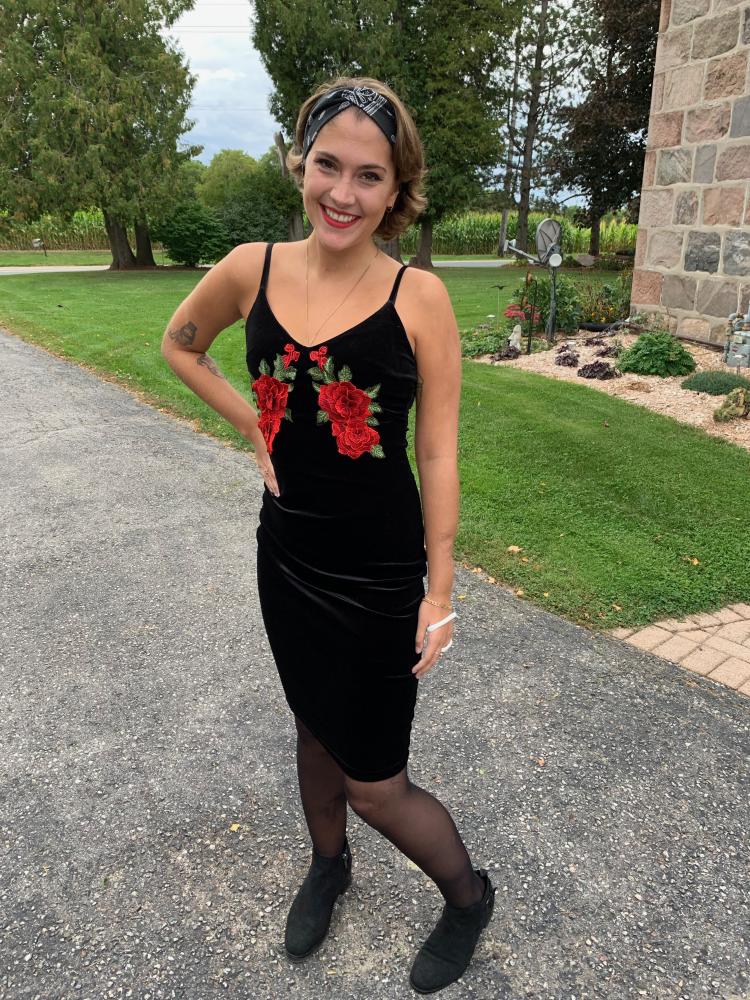
On May 4, 2018, Desiree Ford was in a tragic car accident that claimed the lives of her friend and her dog.
Desiree had to be airlifted in to Victoria Hospital due to the severity of her injuries and required seven complete blood transfusions within the first 20 hours of her accident. Doctors weren’t sure she would make it through her first 24 hours, but she pulled through.
Thanks to the work of the doctors and nurses at London Health Sciences Center (LHSC), Desiree survived and has made significant strides towards healing.
Desiree’s injuries were extensive and complex: 11 fractures, a cracked liver, a blood clot in her spleen, a tear in her upper colon, an acquired brain injury, as well as scrapes and deep contusions covering her body. She also suffered multiple compound fractures, which is when a piece of bone protrudes through your skin. When Desiree’s car crashed, it rolled into a muddy field, which also caused her to contract an infection in her lower leg.
Desiree was admitted to the Critical Care Trauma Center (CCTC) of LHSC where she was in a coma for 21 days. Desiree’s mother remembers how emotional those first few weeks were: “It was 21 days before we knew she was going to survive, and we didn’t know what the extent of her brain injury would be until she woke up.” When she finally woke up, she couldn’t talk. Desiree didn’t speak her first words until June 27, which was 54 days after the accident. Desiree was looking at photos on her mother’s phone, pointed at a picture of herself and said, “That’s me”. Her mother said, “She spoke intelligently and was articulate. It was a miracle.”
Desiree stayed in the CCTC for 34 days, and while she was there her mother, Betty, never left her side. Thankfully, connected to the CCTC waiting room are three quiet rooms. These quiet rooms are completely donor funded, and offer a private, quiet space with a pull-out bed for visitors to spend the night if they choose to. Betty used a quiet room for five days straight shortly after Desiree’s accident.
“The quiet rooms are an absolute godsend at a time like this. I never wanted to be too far from Desiree, and these rooms allowed me to rest while staying close. They also provided a space for my family and close friends to be together during this critical time,” Betty says.
Desiree has had 24 surgeries to date in order to address her injuries, including skin graphing to repair the damage left from an infection on her leg. She will also have a surgery in the near future to correct fused bones in her forearm.
Desiree plans to use her traumatic experience to become a motivational speaker for school aged children. She says: “I want to help change the way people view their lives. As much as you think, ‘that’ll never happen to me’ – it does, and it can.” She hopes that she can encourage wise choices to spare others from going through what she did.
While Desiree’s road to recovery will be long and challenging, she and her mother are grateful for the treatment and support they received from LHSC. When reflecting on her time in CCTC, Desiree’s mother said, “I trusted my child’s life with them, and that is hard to do. We are lucky that Desiree could be at such a wonderful health care facility. I’m so glad we live here.”
London Health Sciences Foundation raises money for trauma patient assistance and also holds community events like the Trauma Golf Classic that raises money for the CCTC to help patients like Desiree.